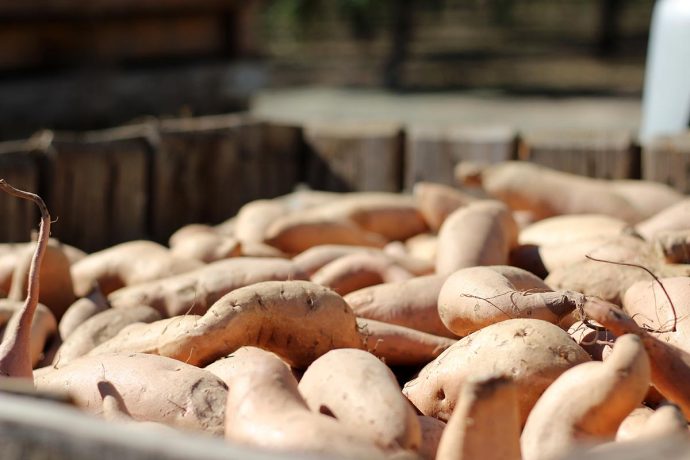Like so many other hip trends in the world of food and drink, the “farm to [insert culinary implement here]” movement has endured a fair bit of ridicule in recent years. While people generally don’t mind the sentiment, it has become something of a lightning rod for backlash against the yuppification of restaurants and farmers markets around the country.
In the city of Atwater, California, though, there’s a farm-to-bottle distillery that couldn’t be further from that urban pretension. Located just outside of Merced in the Central Valley, Corbin Cash has been making award-winning vodka, gin, liqueurs, and a range of whiskeys on their family farm since 2009, all distilled from the sweet potatoes and rye they’ve grown for nearly a century.
We were fortunate enough to be invited to the farm last week by founder David Souza, and after a quick flight from Oakland to Merced (if you’re ever looking for a weekend getaway, it’s about $50 round-trip), we spent the day touring the Corbin Cash distillery and seeing their harvest in action.
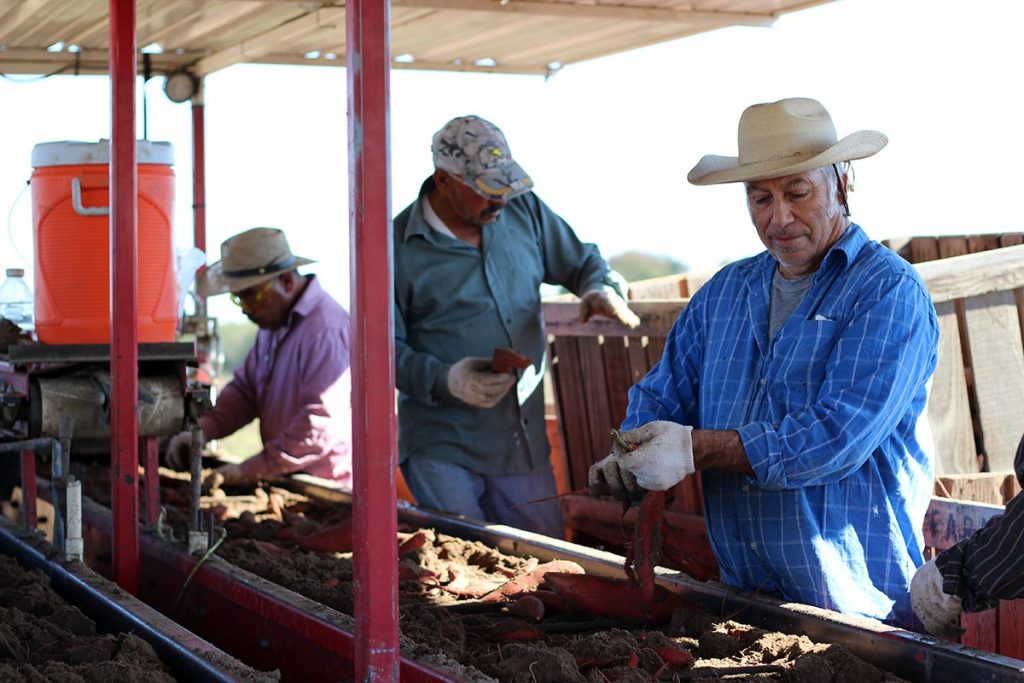
Sorting sweet potatoes. | Photo: Will Shenton
Out in the fields, the harvest operations were in full swing. After the surface plants have been cut down, workers ride up and down the rows on tractor-pulled sorting platforms that scoop the potatoes onto a conveyor belt. Though some recent rains had complicated things (not that anybody was really complaining), the farm was buzzing with activity.
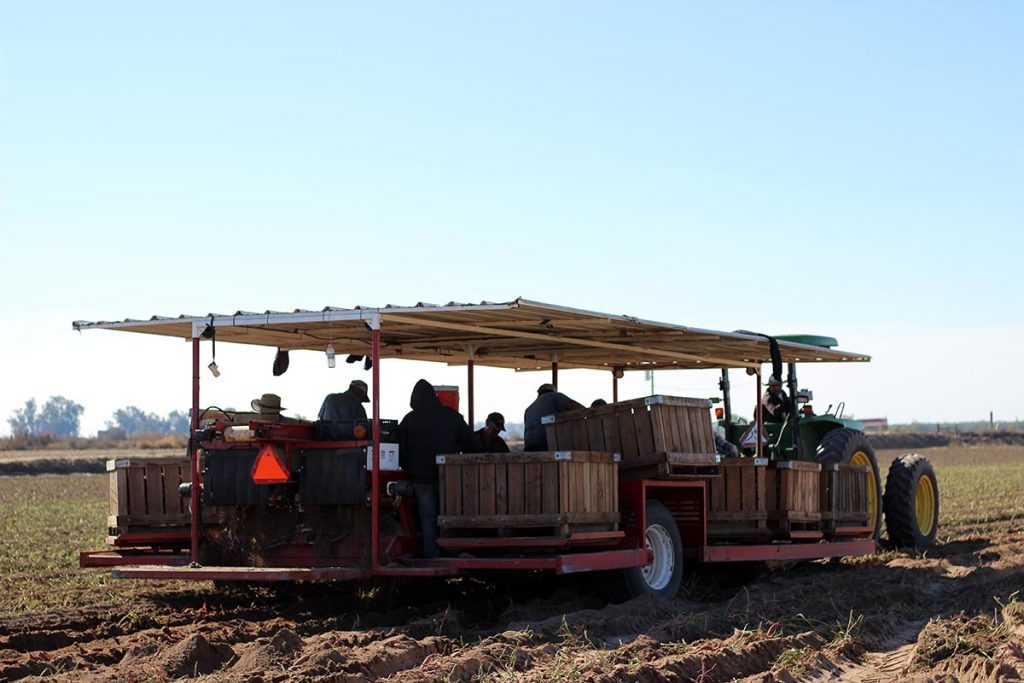
Photo: Will Shenton
While the potatoes are generally harvested in the fall, the rye is planted around the same time as a cover crop to reduce erosion and replenish soil nutrients. Before opening the distillery, it would simply be tilled back into the soil as fertilizer—but now, much of it serves as the base of their Merced Rye Whiskey.
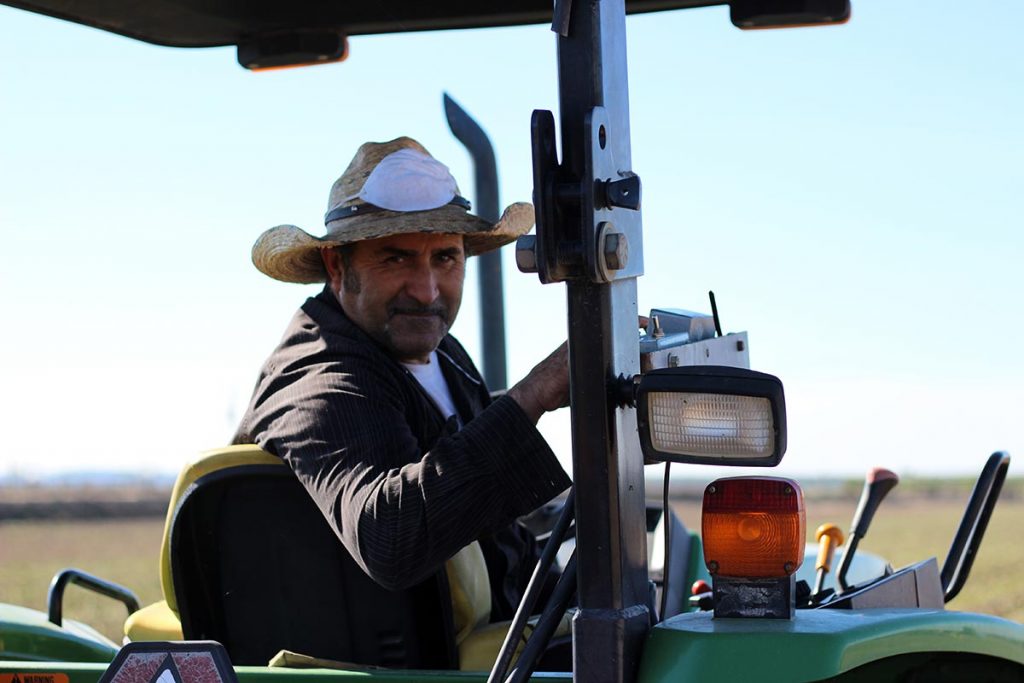
Photo: Will Shenton
Once they’re sorted by size and quality, the sweet potatoes undergo a bit of TLC before being boxed for retail or sent to the distillery. They’re pressure-washed at a nearby warehouse, and any spoiled or visibly damaged ones are picked out by hand.
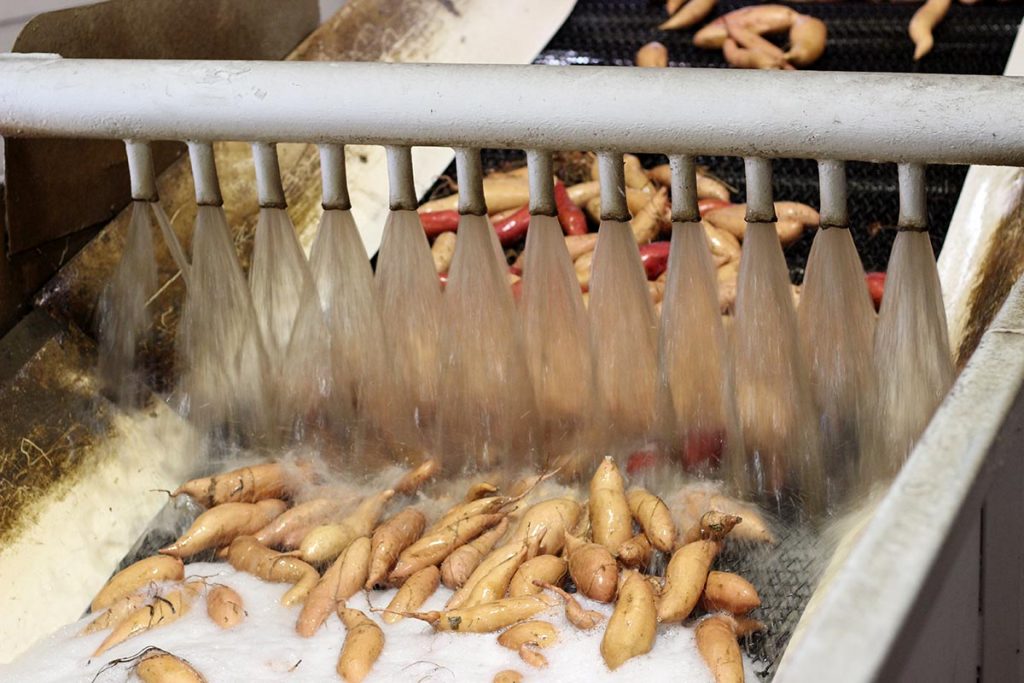
Washing sweet potatoes in the warehouse. | Photo: Will Shenton
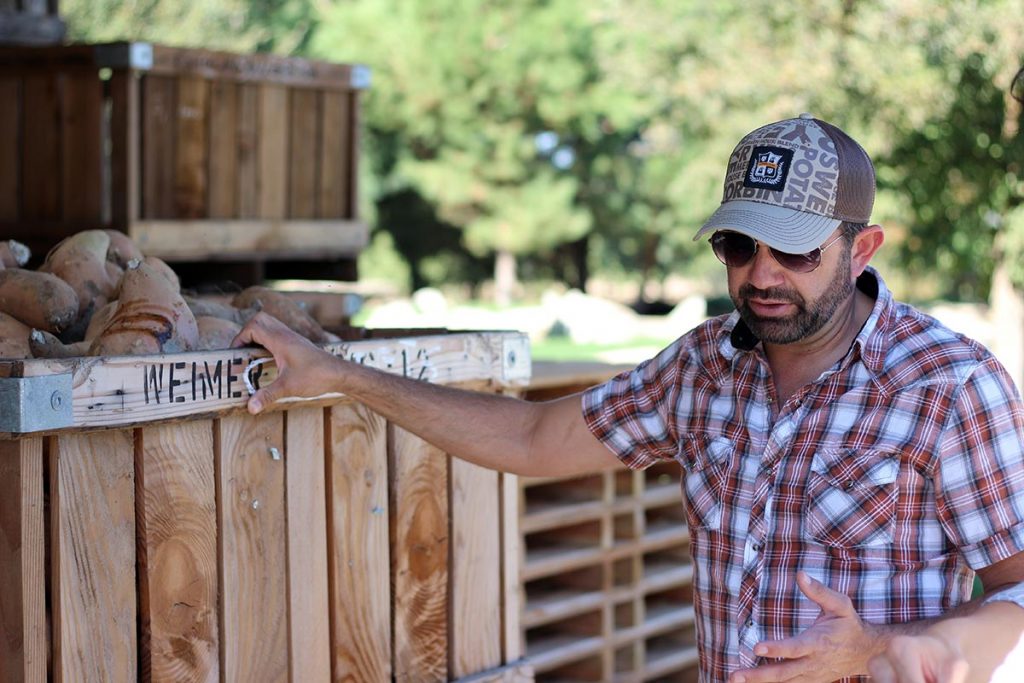
Corbin Cash founder David Souza explains his process. | Photo: Will Shenton
A number of the potatoes (typically the ones that are too ugly to sell in the grocery store) eventually make their way to the Corbin Cash distillery, where they’re prepared for fermentation. After experimenting with a number of different methods, from sweet potato chips to pulverized flour, Souza settled on a process of just mashing them all to hell in this thing:
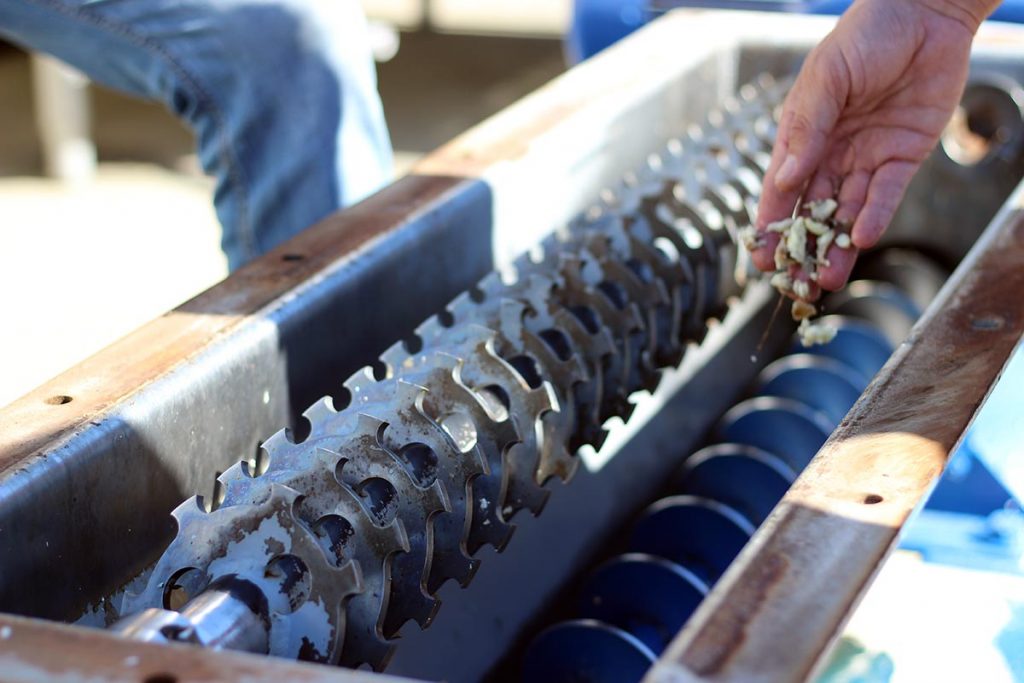
The grinder, disassembled. | Photo: Will Shenton
Then, the potatoes (or rye, depending on the production run) are fermented for a few days in one of their several mash tuns before being run through one of the distillery’s two stills.
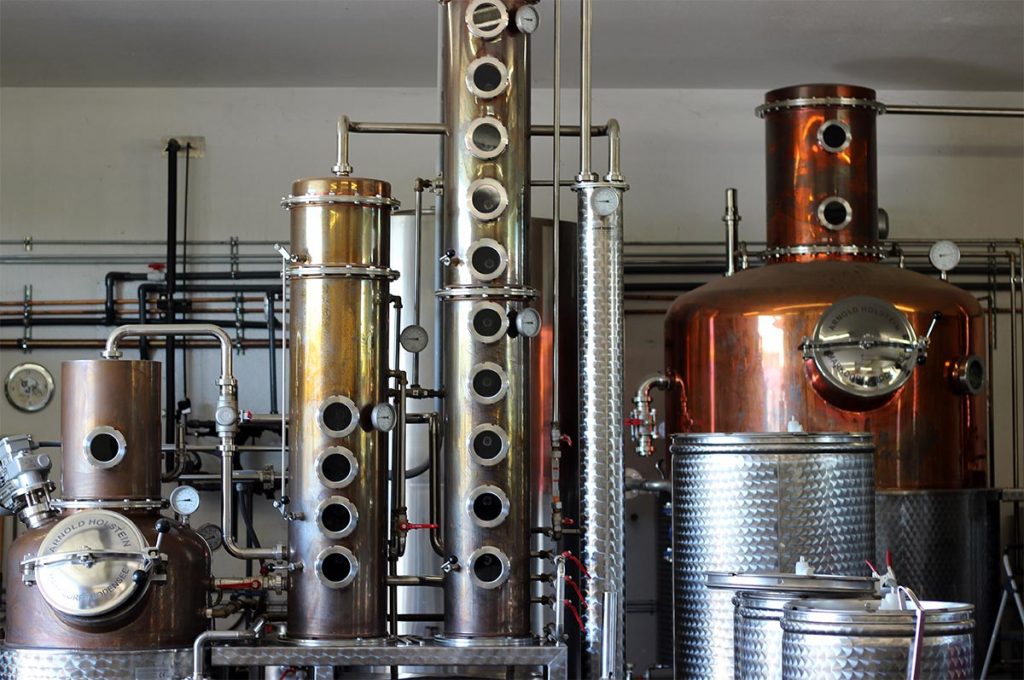
Left: Smaller column still used for gin and vodka. Right: Larger column still used for whiskey. | Photo: Will Shenton

One of the distillery’s several feline mascots. | Photo: Will Shenton
Once the vodka and gin come off the still, they’re ready to be proofed down and bottled. But for the sweet potato liqueur and whiskeys, it’s off to the rickhouse to age in charred American oak casks.
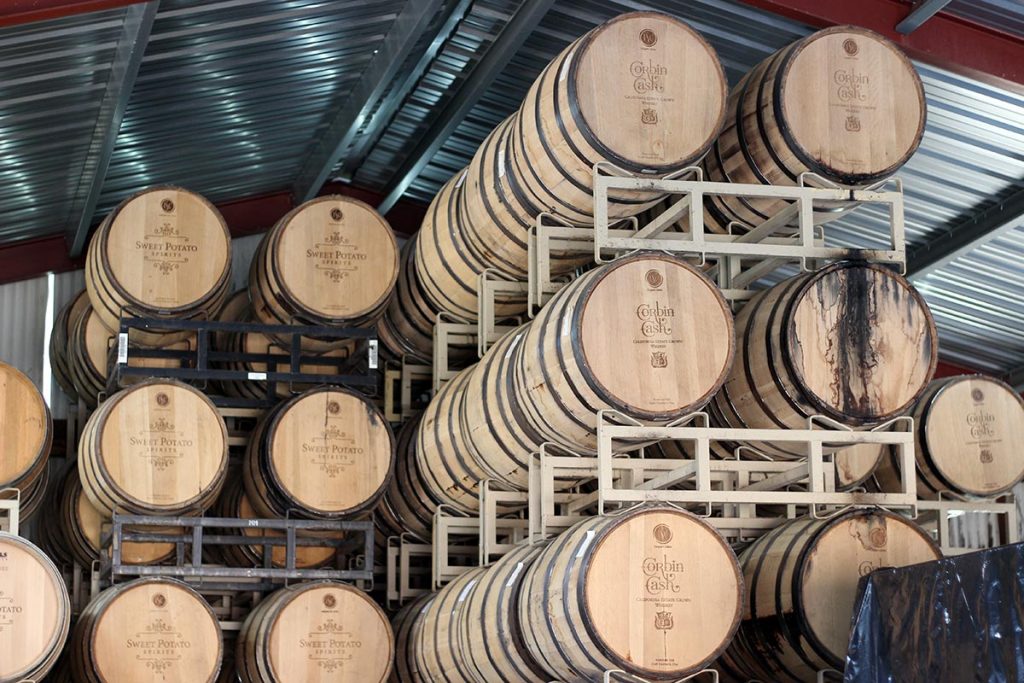
The Corbin Cash rickhouse. | Photo: Will Shenton
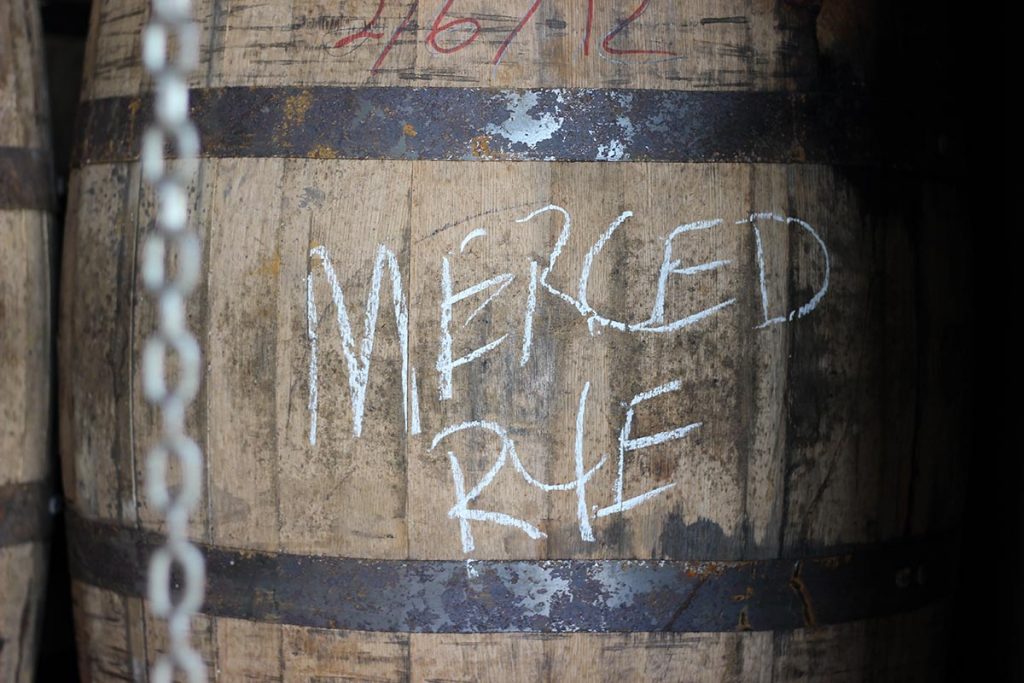
A barrel of Merced Rye Whiskey. | Photo: Will Shenton
Then, everything is proofed down as necessary, bottled, and sent off to bars and liquor stores across the West Coast. It was pretty fascinating to see the process from start to finish, and though we’ve visited a lot of distilleries in our time, this is one with an impressively short distance between farm and bottle.
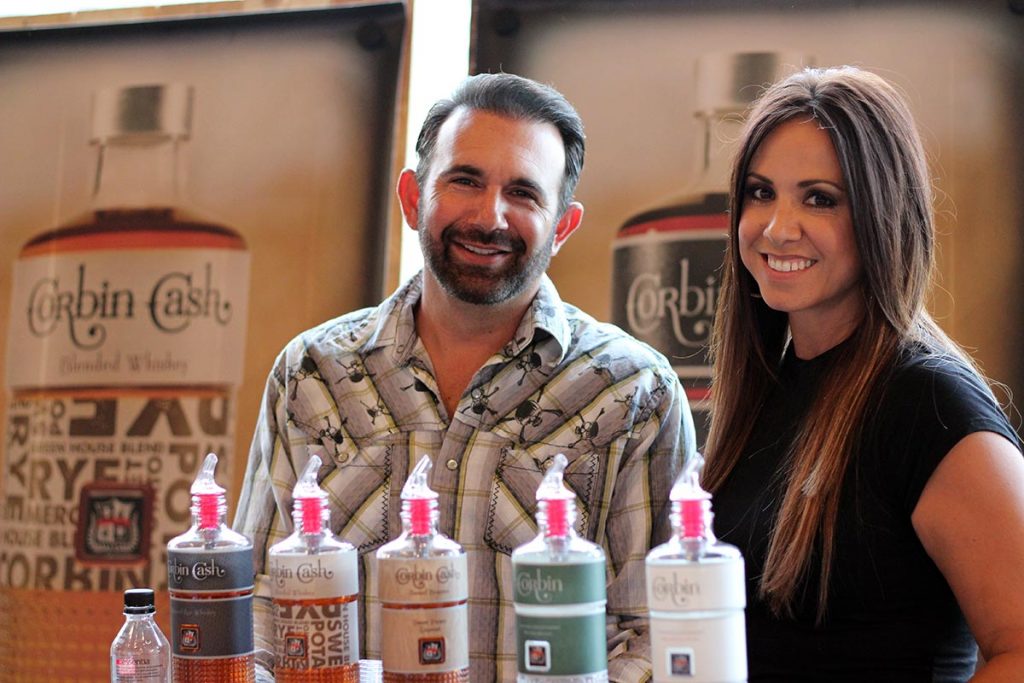
David Souza and teammate Jacqueline Rocha at the 2016 Craft Spirits Carnival | Photo: Will Shenton
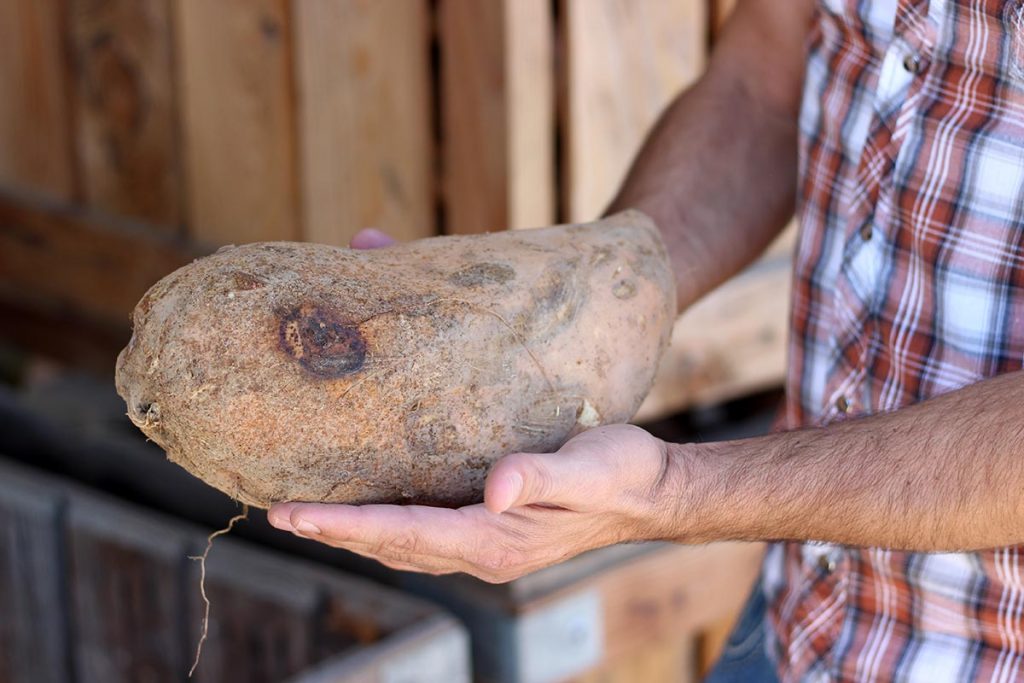
Bonus giant sweet potato. David Souza for scale. | Photo: Will Shenton
